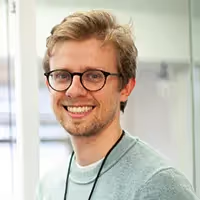Pozyx UWB and cutting-edge self-driving cars
Pozyx is one of the participants in the Deep Orange 12 project, a prestigious and large-scale test for self-driving racecars organized by CU-ICAR, the Clemson University International Center for Automotive Research. The UWB system developed by Pozyx is a key piece of the autonomous driving puzzle: it allows researchers to accurately position cars in real-time at high speeds. With the data collected by the system, researchers are making autonomous driving safer, more reliable, and more efficient.
More than 30 schools are competing in the Deep Orange 12 challenge to make high-speed racecars drive at speeds up to 180 mph (290 kph) around the Indianapolis Motor Speedway without a driver behind the wheel. The competition has brought the best and brightest teams and technology together, all with the aim of winning the challenge and the million-dollar prize.
As a company working with the latest positioning technology, Pozyx could not be absent. Pozyx has installed dedicated infrastructure on the CU-ICAR campus to make ultra-wideband (UWB) tracking straightforward to work with. With dedicated anchors to collect data and with tags mounted on the vehicles, every movement of a car is tracked in real-time with 10 to 30 cm (4 to 12 inches) accuracy.
GSA Business has written a report about the challenge, the participants, and the Pozyx positioning system used in the competition. Read it below on the GSA website (USA readers). Or download the article in PDF for European visitors.

Written by
Samuel Van de Velde
CTO & Co-Founder at Pozyx
Samuel is an electrical engineer with a strong interest in location technology. Skilled in Entrepreneurship, Public Speaking, Product Management, internet of things (IoT), and Machine Learning. After graduating In 2010, he joined the Department of Telecommunications and Digital Information Processing (TELIN) to pursue a Ph.D. degree on the topic of collaborative indoor localisation. In 2015, he founded the spin-off company Pozyx out of that research.








